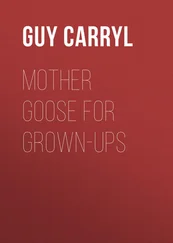Guy Carryl - The Transgression of Andrew Vane - A Novel
Здесь есть возможность читать онлайн «Guy Carryl - The Transgression of Andrew Vane - A Novel» — ознакомительный отрывок электронной книги совершенно бесплатно, а после прочтения отрывка купить полную версию. В некоторых случаях можно слушать аудио, скачать через торрент в формате fb2 и присутствует краткое содержание. Жанр: foreign_prose, Зарубежные любовные романы, на английском языке. Описание произведения, (предисловие) а так же отзывы посетителей доступны на портале библиотеки ЛибКат.
- Название:The Transgression of Andrew Vane: A Novel
- Автор:
- Жанр:
- Год:неизвестен
- ISBN:нет данных
- Рейтинг книги:3 / 5. Голосов: 1
-
Избранное:Добавить в избранное
- Отзывы:
-
Ваша оценка:
- 60
- 1
- 2
- 3
- 4
- 5
The Transgression of Andrew Vane: A Novel: краткое содержание, описание и аннотация
Предлагаем к чтению аннотацию, описание, краткое содержание или предисловие (зависит от того, что написал сам автор книги «The Transgression of Andrew Vane: A Novel»). Если вы не нашли необходимую информацию о книге — напишите в комментариях, мы постараемся отыскать её.
The Transgression of Andrew Vane: A Novel — читать онлайн ознакомительный отрывок
Ниже представлен текст книги, разбитый по страницам. Система сохранения места последней прочитанной страницы, позволяет с удобством читать онлайн бесплатно книгу «The Transgression of Andrew Vane: A Novel», без необходимости каждый раз заново искать на чём Вы остановились. Поставьте закладку, и сможете в любой момент перейти на страницу, на которой закончили чтение.
Интервал:
Закладка:
The Carnby hôtel was one of the number in the Villa Dupont. One turned in through a narrow gateway, from the sordid dinginess of the Rue Pergolèse, and, at a stone's throw from the latter's pungent cheese and butter shops, and grimy charbonneries , came delightfully into the shade of chestnuts greener than those exposed to the dust of the great avenues, and to the sound of fountains plashing into basins buried in fresh turf. It was very quiet, like some charming little back street at St. Germain or Versailles, and the houses, with their white walls and green shutters and glass-enclosed porticos, were more like country villas than Parisian hôtels . The gay stir of the boulevards and the Avenue du Bois might, to all seeming, have been a hundred kilometres distant, so still and simple was this little corner of the capital. Jeremy frankly adored it. He had a great office looking out upon the Place de l'Opéra, and when he rose from his desk, his head aching with the reports and accounts of the mighty insurance company of which he was the European manager, and went to the window in search of distraction, it was only to have his eyes met by a dizzier hodge-podge than that of the figures he had left – the moil of camions , omnibuses, and cabs, threading in and out at the intersection of the six wide driveways, first up and down, and then across, as the brigadier in charge regulated the traffic with sharp trills of his whistle, which jerked up the right arms of the policemen at the crossings, as if some one had pulled the strings of so many marionettes with white batons in their hands. All this was not irritating, or even displeasing, to Jeremy. He was too thorough an American, despite his long residence in Paris, and too keen a business man, notwithstanding his wife's fortune, not to derive satisfaction from every evidence of human energy. The Place de l'Opéra appealed to the same instincts in his temperament that would have been gratified by the sight of a stop-cylinder printing-machine in action. But, not the less for that, his heart was domiciled in the hôtel in the Villa Dupont.
On a certain evening in mid-April, Jeremy had elaborated his customary half-hour walk homeward with a detour by way of the Boulevard Malesherbes, the Parc Monceau, and the Avenue Hoche, and it was close upon six when he let himself in at his front door, and laid his derby among the shining top-hats of his wife's callers, on the table in the antichambre . Through the half-parted curtains at the salon door came scraps of conversation, both in French and English, and the pleasant tinkle of cups and saucers; and, as he passed, he had a glimpse of several well-groomed men, in white waistcoats and gaiters, sitting on the extreme edges of their chairs, with their toes turned in, their elbows on their knees, and tea-cups in their hands; and smartly-dressed women, with big hats, and their veils tucked up across their noses, nibbling at petits fours . He turned into his study with a feeling of satisfaction. It was incomprehensible to his mind, this seemingly universal passion for tea and sweet cakes; but if the institution was to exist under his roof at all, it was gratifying to know that, albeit the tea was the finest Indian overland, and the sweet cakes from the Maison Gagé, it was not for these reasons alone that the 16th Arrondissement was eager, and the 7th not loath, to be received at the hôtel in the Villa Dupont. Jeremy knew that his wife was the most popular woman in the Colony, as to him she was the best and most beautiful in the world. Before he touched the Temps or the half-dozen letters which lay upon his table, he leaned forward, with his elbows on the silver-mounted blotter, and his temples in his hands, and looked long at her photograph smiling at him out of its Russian enamel frame. If the world, which laughed at him for his prim black neckties and his common-sense shoes, even while it respected him for his business ability, had seen him thus, it would have shared his wife's knowledge that Jeremy Carnby was an uncommonly good sort.
He opened his letters carefully, slitting the envelopes with a slender paper-knife, and endorsing each one methodically with the date of receipt before passing on to the next. All were private and personal, his voluminous business mail being handled at his office by a secretary and two stenographers. With characteristic loyalty, Jeremy wrote regularly to a score of old acquaintances and poor relations in the States, most of whom he had seen but once or twice in the twenty-five years of his exile, and read their replies with interest, often with emotion: and his own left hand knew not how many cheques had been signed, and cheering words written, by his unassuming right, in reply to the plaints and appeals of his intimates of former years. For the steady, white light of Jeremy Carnby's kindliness let never a glint of its brightness pass through the closely-woven bushel of his modesty.
He hesitated with the last letter in his hand, reread it slowly, and then lit a cigar and sat looking fixedly at his inkstand, blowing out thin coils of smoke. So Mrs. Carnby found him, as she swept in, dropped into a big red-leather arm-chair, and slid smoothly into an especial variety of small talk, wherewith she was wont to smooth the business wrinkles from his forehead, and bring him into a frame of mind proper to an appreciation of the efforts of their chef .
"If it isn't smoking a cigar at fifteen minutes before the dinner-hour!" she began, with an assumption of indignation. "Really, Jeremy, you're getting quite revolutionary in your ways. I think I shall tell Armand that hereafter we shall begin dinner with coffee, have salad with the Rüdesheimer, and take our soup in the conservatory."
Mr. Carnby laid down his cigar.
"I lit it absent-mindedly," he answered. "Have they gone?"
"No, of course not, stupid!" retorted his wife. "They're all out there. I told them to wait until we'd finished dinner. Now, Jeremy! why will you ask such questions?"
"It was stupid of me," he admitted.
"And to punish you, I shall tell you who they were," announced Mrs. Carnby. "I might do worse and tell you all they said. You're so – so comfortable , Jeremy. When I'm on the point of boiling over because of the inanities of society I can always come in here and open my safety-valve, and you don't care a particle, do you, if I fill your study full of conversational steam?"
Jeremy smiled pleasantly.
"You nice person!" added his wife. "Well, here goes. First, there was that stupid Mrs. Maitland. She told me all about her portrait. It seems Benjamin-Constant is painting it – and I thought the others would never come. Finally, however, they did – the Villemot girls and Mrs. Sidney Kane, and a few men – Daulas and De Bousac and Gerald Kennedy and that insufferable little Lister man. Then Madame Palffy. It makes me furious every time I hear her called 'madame.' The creature was born in Worcester – and do you know, Jeremy, I'm positive she buys her gowns at an upholsterer's? No mere dressmaker could lend her that striking resemblance to a sofa, which is growing stronger every day! Her French is too impossible. She was telling Daulas about something that never happened to her on her way out to their country place, and I heard her say ' compartiment de dames soûles ' quite distinctly. I can't imagine how she contrives to know so many things that aren't so. One would suppose she'd stumble over a real, live fact now and again, if only by accident. And her husband's no better. Trying to find the truth in one of his stories severely taxes one's aptitude in long division. I saw him at the Hatzfeldts' musicale night before last. Pazzini was playing, and Palffy was sound asleep in a corner, after three glasses of punch. I really felt sorry that a man with such a wife should be missing something attractive, and I was going to poke him surreptitiously with my fan, but Tom Radwalader said, 'Better let the lying dog sleep!' He positively is amusing, that Radwalader man!"
Читать дальшеИнтервал:
Закладка:
Похожие книги на «The Transgression of Andrew Vane: A Novel»
Представляем Вашему вниманию похожие книги на «The Transgression of Andrew Vane: A Novel» списком для выбора. Мы отобрали схожую по названию и смыслу литературу в надежде предоставить читателям больше вариантов отыскать новые, интересные, ещё непрочитанные произведения.
Обсуждение, отзывы о книге «The Transgression of Andrew Vane: A Novel» и просто собственные мнения читателей. Оставьте ваши комментарии, напишите, что Вы думаете о произведении, его смысле или главных героях. Укажите что конкретно понравилось, а что нет, и почему Вы так считаете.












